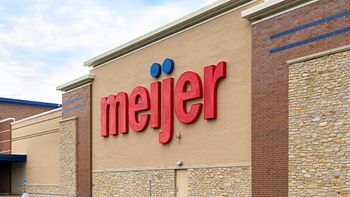
- Pharmaceutical Commerce - April 2010
Diplomat Specialty Pharmacy poised for growth in Michigan
Specialty pharmacy wins $61.5M in tax credits and $14M in grants for 1,000-plus jobs
There’s at least one upside to the downfall of the American auto industry: Michigan is eager to find other industries to bring its economy back to life. Judging by the 18-year, $61.5M tax credit awarded recently to Diplomat Specialty Pharmacy, it looks like the fast-growing specialty pharma industry is the state’s latest target.
The company, the nation’s largest privately held specialty pharmacy, also received $14M in workforce training funds, and additional incentives are expected from the city of Flint. In return, Diplomat plans to sink $12M over the next five years into a former General Motors technology facility and create more than 1,000 jobs in the same period. The company says it plans to add 4,000 jobs by 2028.
Is this growth too ambitious? Probably not for specialty pharma, a “dynamic industry experiencing explosive growth,” as Diplomat CEO Phil Hagerman explains the nearly $100B industry. “Three of the top 10 drugs we provide today didn’t exist five years ago,” he says. “There are hundreds of drugs in the specialty pipeline and it is a likely scenario that half of the top 10 drugs we will provide in five years are not on the market today.”
Last fall, Pamela Leigh Sauerwald, general manager of Specialty Offerings Development for IMS Health, predicted that global revenue from
Articles in this issue
almost 16 years ago
New ethics code draws clear line between physicians and drug companiesalmost 16 years ago
PBMs contact Congress over proposed USPS five-day delivery schedulealmost 16 years ago
FDA puts a spotlight on cargo theft of life sciences productsalmost 16 years ago
New study sets benchmark for post-marketing surveillance processalmost 16 years ago
Comparative effectiveness research gets boost with healthcare overhaul lawalmost 16 years ago
Global pharma growth will be 5-8% annually through 2014, predicts IMS HealthNewsletter
Stay ahead in the life sciences industry with Pharmaceutical Commerce, the latest news, trends, and strategies in drug distribution, commercialization, and market access.




